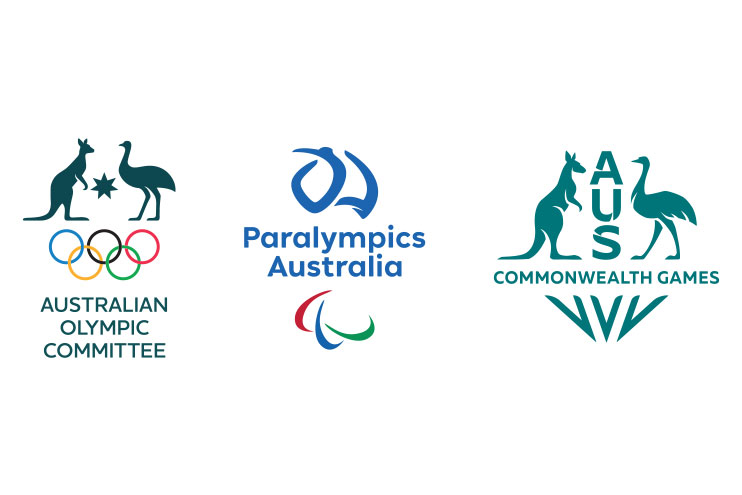
Australia’s three peak sports bodies have welcomed the introduction of Sport Integrity Australia’s National Integrity Framework, designed to provide better outcomes for sports and their members where disputes arise.
Commonwealth Games Australia (CGA), the Australian Olympic Committee (AOC) and Paralympics Australia (PA) who collectively represent 53 sports and more than nine million sporting participants and millions more volunteers across Australia, support the move to provide a suite of policies that will help protect all participants in sport and are encouraging their membership to sign up to the scheme.
The three bodies created a working party with Sport Integrity Australia and the National Sports Tribunal (NST) in 2020 to assist in the development of the fully independent framework to deal with the important issues of abuse, intimidation and other safeguarding issues in Australian sport.
The National Integrity Framework policies, developed in consultation with the sports sector, include areas such as safeguarding children, member protection, competition manipulation and sports wagering, and the misuse of drugs and seek to protect the integrity of Australian sport – from elite competition right through to the grassroots.
A key piece of the framework is a Complaints, Disputes and Discipline Policy detailing an independent and efficient complaints handling model whereby Sport Integrity Australia will be able to assess, investigate and manage complaints and the NST will manage dispute resolution across areas such as member protection, child safeguarding and competition manipulation.
Commonwealth Games Australia CEO Craig Phillips said independent processes are crucial to ensuring that complaints across all area of the framework’s policies are dealt with as efficiently and effectively as possible.
“Commonwealth Games Australia is working to embed the Sport Integrity Australia framework within policies for our Birmingham 2022 Commonwealth Games team,” Mr. Phillips said.
“This will help ensure that disputes relating to breaches of integrity policies are handled in a transparent and fair manner for all parties, and importantly be independent of the sport itself.”
Australian Olympic Committee Chief Executive Officer Matt Carroll said the framework provides important policies and delivery of services that can both standardise and simplify the important processes surrounding codes of behaviour in sport.
“The National Integrity Framework is multi-level and broad as it needs to ensure fairness, transparency and independence in complaints handling. This will ensure complaints are dealt with independently and will significantly reduce the workload of managing complaints at all levels of sport. It also extends to the crucial integrity of sport areas as competition manipulation and anti-doping,” Mr Carroll said.
Paralympic Australia President Jock O’Callaghan said the framework provides sport with a clear mechanism for the independent handling of disputes.
“The framework provides a safe, fair and transparent environment for participants at all levels. The framework sets out the broad expectations for the conduct of all participants, including the crucial elements of procedures for managing, reporting, investigating and determining potential breaches of integrity policies,” Mr O’Callaghan said.
To access this independent assessment and referral system, National Sporting Organisations must adopt the National Integrity Framework in its entirety, with Sport Integrity Australia able to assistance for sports in this process.
In December 2020, the Australian Government announced $13.7 million in funding to boost Sport Integrity Australia’s work, including $10 million for the two-year pilot program for an independent complaints and disputes resolution model to help Australian sporting organisations effectively respond to escalating and shifting integrity threats across sport.
Sport Integrity Australia CEO David Sharpe said the development of the National Integrity Framework is an important step with the Complaints, Disputes and Discipline Policy the centrepiece of the program.
“This will be an opt-in model for sports. If they have signed up for the framework they will be able to formally raise their integrity-related complaint with Sport Integrity Australia in the first instance. The pilot program is designed to be cost-effective, streamlined and will ease the administrative burden on sports through dealing with these issues while ensuring that such issues are being dealt with consistently, fairly and independently.”
The CEO of the National Sports Tribunal (NST) John Boultbee said “an important safeguard within the framework is that in most cases it will direct matters which arise through the sports’ policies to the National Sports Tribunal for resolution, through mediation or conciliation, where appropriate, or otherwise to be adjudicated by the NST. The NST is independent from sport Integrity Australia and the National Sports Organisations.”
National sporting organisations can sign up for the complaints and dispute resolution process provided they have fully adopted the National Integrity Framework.
More information of the National Integrity Framework is available at the Sport Integrity Australia website: https://www.sportintegrity.gov.au/what-we-do/national-integrity-framework


